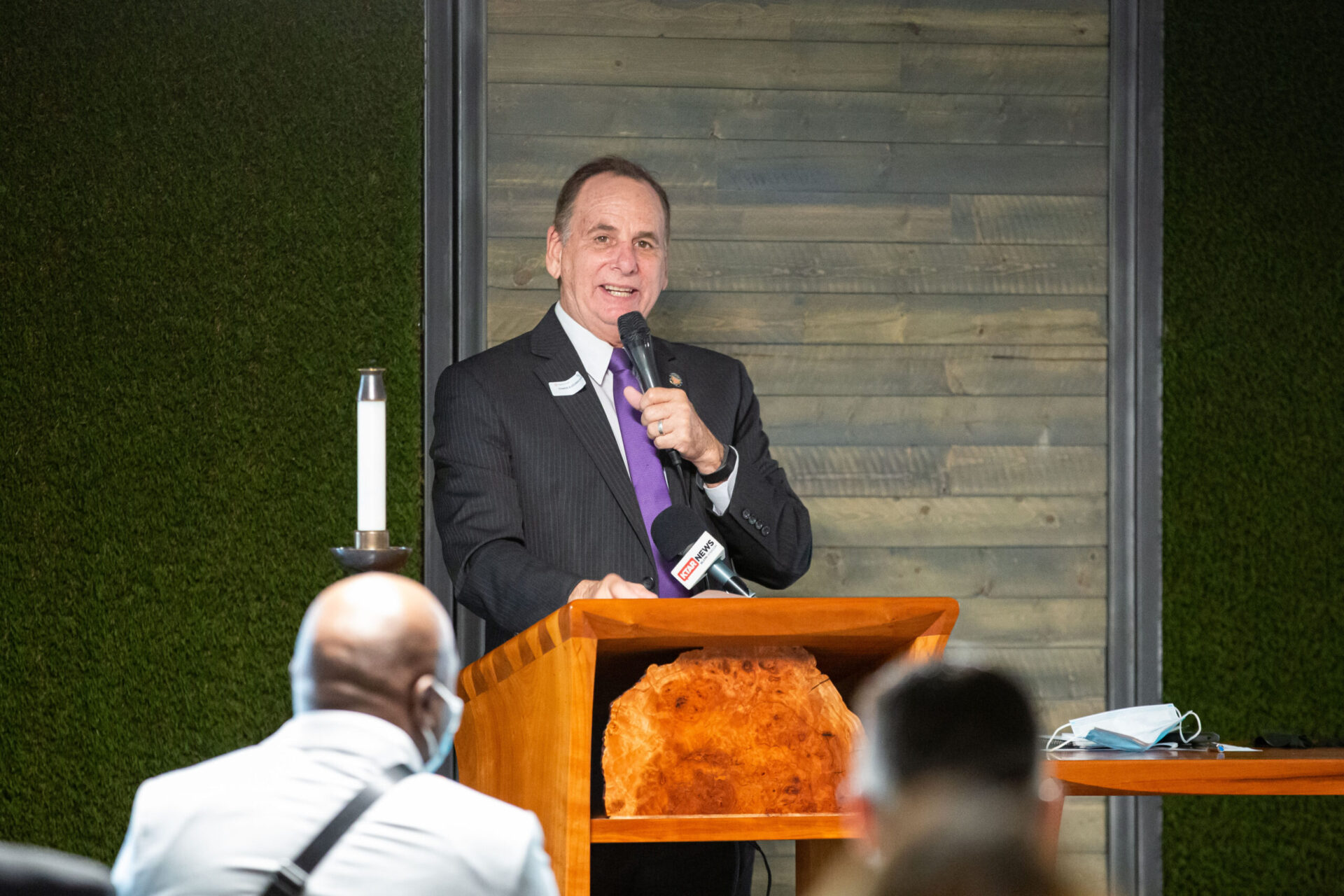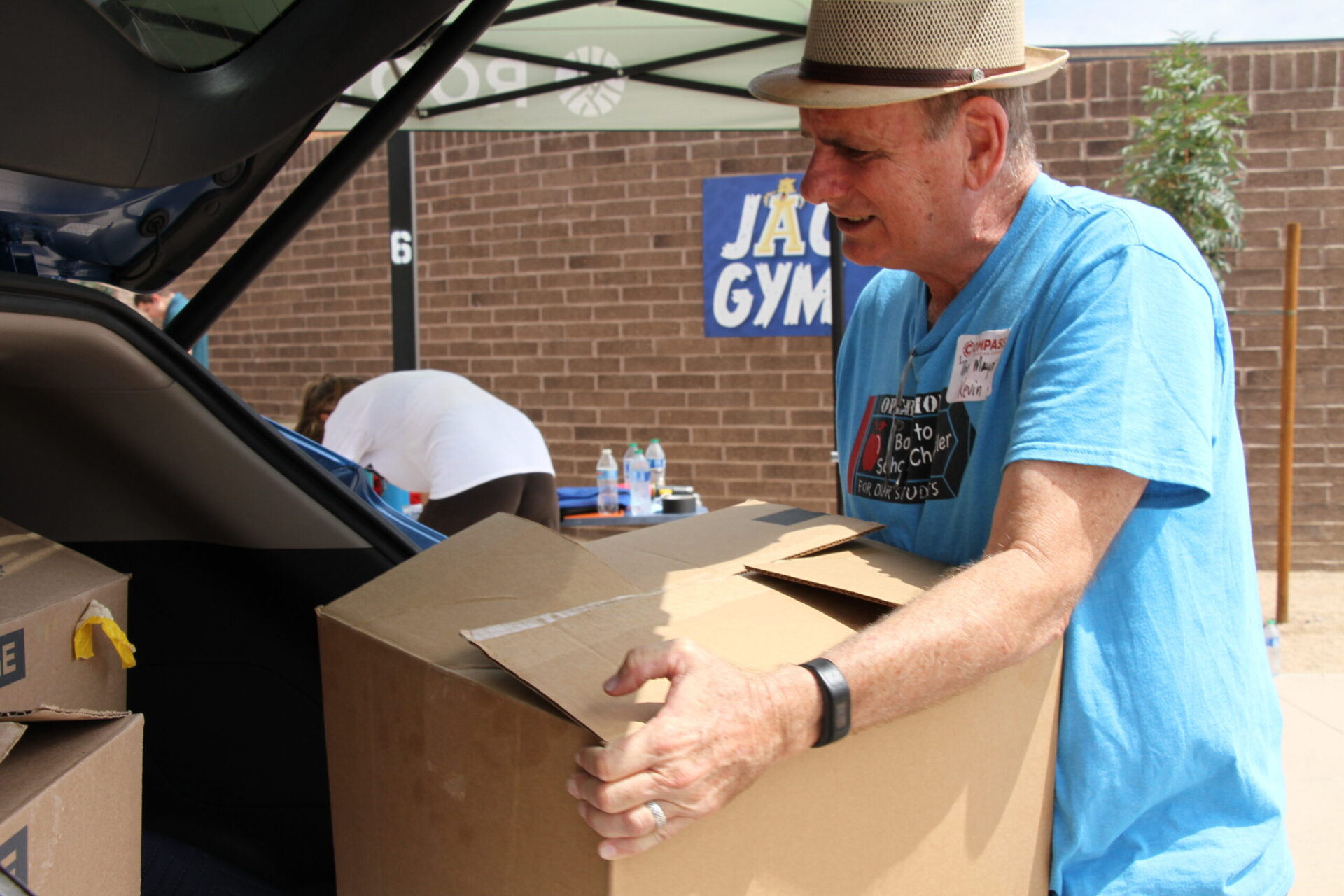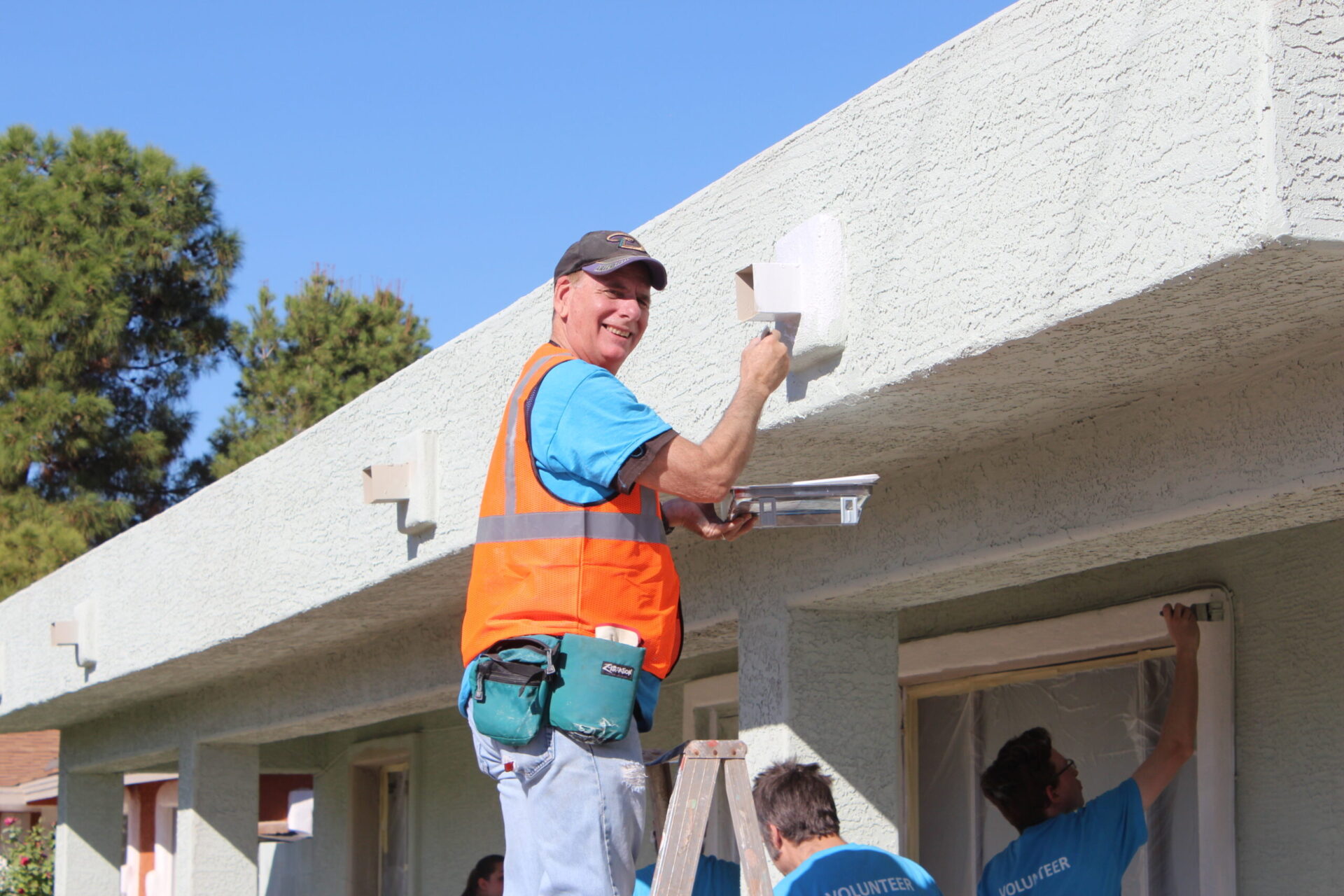
In Part 1 of wn.calicoeng.com’s exclusive interview with Chandler Mayor Kevin Hartke, we looked at Hartke the person, who is a pastor at Trinity Christian Fellowship. Today, in the concluding Part 2, we look at Hartke the politician, including his views on West Chandler, light rail, the Price Corridor, water, police, LGBTQ protections and his own political survival.
Question: The city plans to spend almost $240,000 on signage for the West Chandler Employment Corridor, which is about 7 square miles, has more than 630 businesses that employ more than 29,000 and is home to more than 23,000 people. Clearly, the area is a key economic engine that the city values. But there is a down side: Some of our readers who live in West Chandler, who are separated from downtown by Loop 101 and Loop 202, say they feel disconnected from the city. Did the freeways create a division?
Answer: That’s a good question. I know when the 101 came through it did separate people from where their schools were. It did create a barrier. West Chandler is an interesting part of our city. Sometimes it’s hard to tell whether you are in Tempe or you are in Chandler.
But West Chandler is very special to us in terms of business development, particularly industrial near Ray Road and Interstate 10. Right now, we’re expanding at the 10 and 202 on the northeast corner. There’s a lot of jobs up there, a lot of industrial jobs that are unique. And you’ve got Stellar Airpark in west Chandler, which is a jewel. How many communities in the world actually have a neighborhood where you can taxi your airplane into your garage, or fly daily to California and back to work? Our Desert Oasis Park is beautiful out there. Chandler Fashion Center in West Chandler definitely is one of our jewels. It’s top tier and I’m excited to see Scheels (sporting goods) moving in there and others coming in to see how the center reinvents itself.
Q: Chandler doesn’t seem to want light rail. How can the city become more proactive in mass transportation?
A: In Chandler, we have turned light rail down because of the disruptions of putting it in and the high costs. We’ve focused our attention more on getting people to light rail. The way technology is advancing, there now are vehicles that are able to communicate with traffic lights and other traffic systems. This emerging technology can move people with existing infrastructure. I can put a number of vehicles, that in essence can serve as a light rail, going straight up Arizona Avenue that can communicate with lights, without ripping up a single piece of asphalt. The technology is there. It’s more people catching up with technology than with technology offering new services.
____________________
Read Part 1 of the wn.calicoeng.com exclusive interview with Chandler Mayor Kevin Hartke HERE.
____________________
Q: Your neighbor, Tempe, feels more like a city than a suburb because it has built upward since it can no longer build out. Is that where Chandler is headed?
A: I think we’re going to see more midrise. We are landlocked. We can’t grow anywhere out. We have some pockets of undeveloped land, but even then we’re probably 92 percent developed. Of that other 8 percent, probably half of that is entitled land, meaning it’s gone through planning and zoning, where they’ve submitted a project but they just haven’t done it yet.
The traditional sense of what a suburb is is people live there and then they go work in a central city. Tempe is not that and Chandler is not that. We have a strong work force, about 1.12 jobs per household. My predecessors in this office recognized the strength of having a strong economic engine. Rogers Corp., our first semiconductor company, has been with us for over 50 years. We have Intel now. For the long-term viability of a city, you need more than residences and houses, because once you get through impact fees and long-term tax structure, you’re always going to need to raise taxes. The tax base of businesses and retail is just better than homes and apartments. My predecessors have handed me a true gift in terms of a well-run city with an economic engine.
Q: And the biggest economic engine is the Price Corridor, especially with what Intel plans to do, investing $20 billion to build two more chip plants?
A: Yeah, $20 billion. I was privileged to be on the team talking with them. We relied heavily on the fact that we’ve built a great relationship, great customer service. If something goes wrong with a city, for example not getting water or anything else, it really puts them into a pickle. They’ve helped a lot with our schools. They have been involved in our boards and commissions. They volunteer at events. They’re great community partners.
Q: Is there enough water to keep this place habitable?
A: With our population boom, certainly people use less water than agriculture does, so as cities expand and take over what were fields, you have a net gain. Our Ground Water Act was genius and insightful and still guides us today. We recently went into Level 1 drought conditions with Lake Mead. The immediate impact isn’t going to hurt us as cities, but certainly we need to respond to the fact that even though it’s not going to diminish our supply, future rounds will. Every drop of water that goes down the drain in Chandler gets recycled at least once.
We’ve done an excellent job of securing water with our agreements with Salt River Project, Roosevelt Water District and the Gila River Indian Community to the south. We’ve done a good job of writing code. It’s not enough to just recycle water, it’s how we live our first-time water use because getting water is expensive and recycling water is expensive. It’s our future.

Q: The country has changed in the past year, with calls for social justice, racial justice and police departments under scrutiny for excessive use of force. Chandler increased its budget for police this fiscal year and approved hiring 12 new officers. It’s a city that backs its police, yet there have been some incidents of impropriety with Chandler PD and some people argue there needs to be reform, oversight and review. How do you feel about all of that?
A: I think our police did very well through the past year of protests. They worked with most of the groups to understand their goals. At the same time, they made protesters aware that they’re not there to cause damage and neither are they there to get hurt while exercising their freedom of speech.
I’ve responded to over 500 emails from people who have said defund the police or do police reforms. We’ve actually done a lot in the past and we’re well aligned with what President Obama’s task force came out with. We’ve gone farther and beyond.
There is adequate oversight. Phoenix is just now putting into place a Citizen Review Board. Back when I was on the Chandler Human Relations Commission 27 years ago, that was a recommendation that we had that was put into place. Long before other cities have looked at this, we established that kind of accountability to make sure that our citizens are safe and our police also know that we’ve got their back.
A lot of “defunding” just means reorienting services — who does what and how you do it. We certainly are looking at more mental-health services. Maybe an officer is not the best first response in all situations. We’ve hired and are hiring more homeless navigators that can address people’s concerns on the street.
But who gets the phone call when someone is concerned about someone who is homeless? It’s the police. There’s ways of doing traditional policing that doesn’t always require an officer.
____________________
“When I look in the mirror I don’t see a guy who has to serve in political office. People have asked me, ‘What are you going to do past Chandler?’ I don’t have a plan at this point. I have to believe that I can move a dial. I’m not sure that in a highly charged, partisan environment that I’m your best guy.”
–Chandler Mayor Kevin Hartke
____________________
Q: Some of Chandler’s neighboring cities have enacted ordinances to specifically protect the interests of the LGBTQ community. Chandler City Council made the decision not to do that just yet. Where do you stand on that?
A: No court case of a discrimination ordinance in Arizona has ever survived. There has not been a single case that has been challenged in court that has survived. So I don’t think that an ordinance is the best tool in the tool box. So let’s look at this and look at best practices across the nation and see how we can best address peoples’ fears and concerns.
I believe that we need to make sure we have a climate in our community that stops bullying and discrimination at all levels. I will do whatever I can do for anyone, however they identify themselves, to make sure they’re not being discriminated against in our city.
By percentage, we are the most diverse city in the Valley. Intel and others have scoured the world for talent. We have close to 11 percent Asian population, in the 20s of Hispanic, (about 6 percent African American) and many others. We hired a consultant at the recommendation of our Human Relations Commission. A year ago, I tasked them to look at diversity and inclusion in Chandler as a response to the Black Lives Matter movement.
We did a survey that had more response than any of our city budgets ever did, well over 600. Most responses had to do with communication. We did change our office name from Community Involvement to Diversity, Equity and Inclusion and we doubled the budget.
I’m interested in doing a broad-based look at Chandler to see what are the diversity, inclusion and equity needs beyond what some are calling for, which is an ordinance.
We had a resolution ready to go and we decided that we didn’t want to send a false message that we aren’t looking at more comprehensive things. I believe there is broader work that can be done to keep people safe, keep people included and celebrated in our community.
Q: How old are you now?
A: Older than the hills. I’m 65.
Q: What’s ahead for you?
A: I’ve taken out paperwork to run for re-election. I would like to serve as Chandler’s mayor one more time if my community would have me. When I look in the mirror, I don’t see a guy who has to serve in political office. People have asked me, “What are you going to do past Chandler?” I don’t have a plan at this point. I have to believe that I can move a dial. I’m not sure that in a highly charged, partisan environment that I’m your best guy. I like being able to find the best solutions in the best places regardless of whether they come from a “D” side or “R” side. I’m much more interested in collaboration, in getting things done. I wish more people saw it as I do. I’m a conservative Republican, but I think we really need to look at government down the road, and not just have a knee-jerk reaction, which is government today at the state and federal levels.

Q: Where do you see this place in 10 years?
A: In 10 years, more midrise. Our transportation system is going to be more high tech. Multi-modal transportation is important in the future. I see Chandler continuing to be a place that will offer an array of jobs. If you can provide work for people, it gives them the opportunity to succeed. I love a relationship with our schools. I’m the first guy in my family to go to college. None of my brothers did. And now all of my kids have. I want Chandler to be a place where people can thrive, where people can change the trajectory of their family histories to prosperity.
Q: In this day and age, we have so much discord and civil discourse seems lost. I see that in the community but I don’t see it at City Hall. How do you manage?
A: I realize I’m one of seven votes even though I’m the mayor. I want to work with these people, my council, on issues beyond this. It’s important that we can be passionate and argue as vehemently or as strongly as we wish, but at the end of the day, whether it’s to go out for a drink or a handshake, be able to move on because we’ll always have issues that we’ll need each other on.

